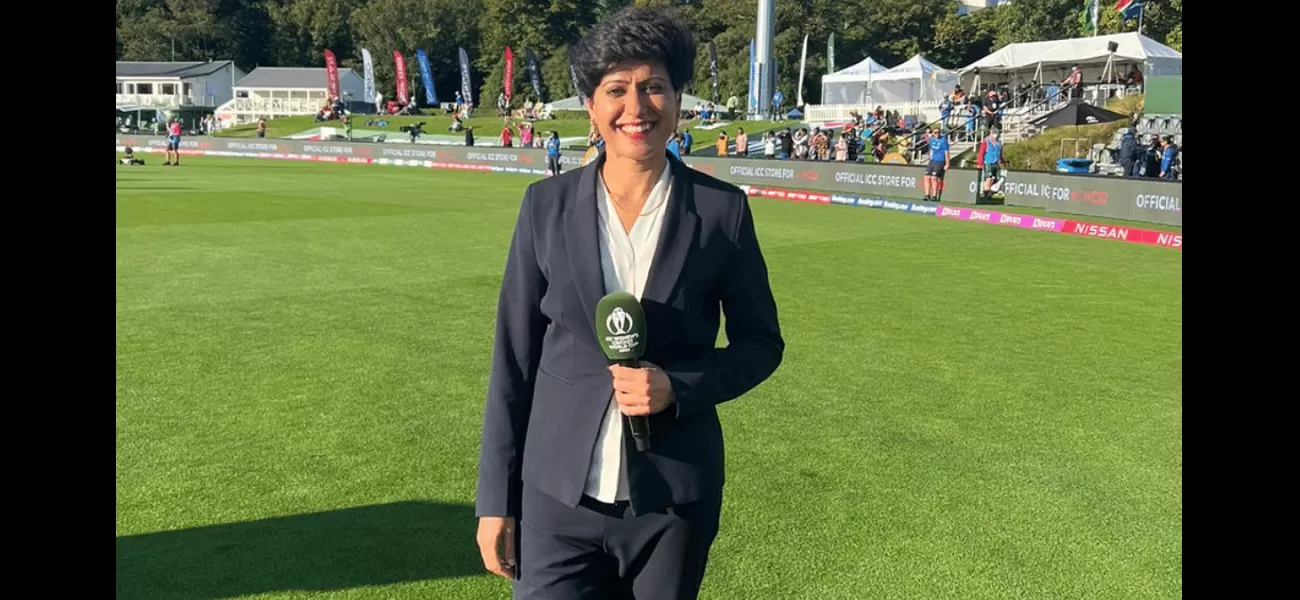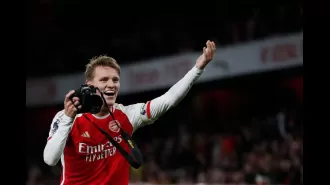Anjum: Women's cricket has progressed significantly, allowing for greater visibility and popularity than before.
October 24th 2023.

Anjum Chopra, the former captain of India’s national women’s cricket team, is a quiet but firm presence in the game, having seen its growth from close quarters. A stylish and fearless left-hander, she represented India in 157 matches, 41 of those as captain, and is an icon of women’s cricket in India. She is now a commentator and author of a coffee table book Women’s Cricket World – A Journey from 1745-2013.
When asked about her two decades of international cricket, Chopra replied, “I am so passionate about the game. I feel fortunate to have played for India and captained the team. It is a blessing. And now, It is because of the sport and the matches I played that I can stand in the middle of the ground, where only players and people closest to the game are allowed. This is what keeps me going.”
In the past, women’s cricket had no professional structure, exposure, or recognition, so the struggles for female cricketers were vastly different. “Things were not smooth for female cricketers in the past,” Chopra said. “A lot of things have changed. I feel women of that generation were very strong-willed, wanting to perform and not take a step back. Women continued to sustain the sport and play before men did. Cricket was never a men’s game. It was played by women initially, till men started playing in the early 19th century. I have immense respect for those women who played cricket even before the sport became famous without any expectations.”
In light of the BCCI’s recent announcement of equal pay for ICC winners, Chopra commented, “This step is a testament to the growing popularity of the sport, especially women’s cricket. From women players paying from their own pockets to play to getting equal pay at ICC events, things have come a long way.”
When asked if she missed the opportunity of playing with similar exposure, Chopra replied, “Playing for India and captaining the team is the biggest opportunity. To date when I see my India T-shirt I feel proud to own it. I still have those memories when I received an India cap and a bag for the first time. I still remember the cheer of the audience on the ground. Lifting a trophy as Indian captain gives you a different high irrespective of the era. I am happy the sport is evolving, especially because I am a former captain for team India and because the sport has evolved I still have a presence in the game and some role to play.”
Chopra believes that female cricketers have more fame today than before. “We never had the easy popularity scope that the cricketers have today. If we were playing today, we would have been stars and would have been dominating the game. Today, whatever the game is, if we were playing, we would have scored more runs, we would have played more games and would have never lost in the finals at least. There's a generational difference. The team in 2005, which I was part of, was better than the team in 2017. We knew about our training, strengths, weaknesses, and discipline. We used to prepare when no one was seeing us but today, a player steps out of the house, you have a wicket and coaches ready. Today, players have so much popularity beyond their games, so if we were there, we would have done much better.”
Chopra also commented on the lack of strong and skilled coaching. “Coaching doesn't happen at this level where our women players are today. Coaching is a direction which you start taking from the time you start playing the sport. It's like teaching a MasterChef candidate to cut an onion. This is something you learned in the beginning. A coach can always help you hone your skills but can't teach you from the beginning. No one is going to teach you how to catch a ball, you are supposed to know that. You learn on the way and with each game. You start understanding the game. It's about what you have learned at the basic level and not always the coach at fault, you may have not learned right. Maybe you have not practiced and refined the game enough.”
Finally, Chopra commented on the treatment of sports personnel, especially female athletes, who are often taken advantage of by committee members. “It's not about a sport, it's about people of that mindset being present around the sports profession. The field has nothing to do with exploitation but about an individual and the mindset of the person. It's not only about the sports profession. Harassment against women is in every field but not many choose to speak about it. People know the repercussions of speaking out so not many would choose to speak. I appreciate the wrestlers who are putting in relentless efforts to speak about it. The damage is huge for speaking out.”
When asked about her two decades of international cricket, Chopra replied, “I am so passionate about the game. I feel fortunate to have played for India and captained the team. It is a blessing. And now, It is because of the sport and the matches I played that I can stand in the middle of the ground, where only players and people closest to the game are allowed. This is what keeps me going.”
In the past, women’s cricket had no professional structure, exposure, or recognition, so the struggles for female cricketers were vastly different. “Things were not smooth for female cricketers in the past,” Chopra said. “A lot of things have changed. I feel women of that generation were very strong-willed, wanting to perform and not take a step back. Women continued to sustain the sport and play before men did. Cricket was never a men’s game. It was played by women initially, till men started playing in the early 19th century. I have immense respect for those women who played cricket even before the sport became famous without any expectations.”
In light of the BCCI’s recent announcement of equal pay for ICC winners, Chopra commented, “This step is a testament to the growing popularity of the sport, especially women’s cricket. From women players paying from their own pockets to play to getting equal pay at ICC events, things have come a long way.”
When asked if she missed the opportunity of playing with similar exposure, Chopra replied, “Playing for India and captaining the team is the biggest opportunity. To date when I see my India T-shirt I feel proud to own it. I still have those memories when I received an India cap and a bag for the first time. I still remember the cheer of the audience on the ground. Lifting a trophy as Indian captain gives you a different high irrespective of the era. I am happy the sport is evolving, especially because I am a former captain for team India and because the sport has evolved I still have a presence in the game and some role to play.”
Chopra believes that female cricketers have more fame today than before. “We never had the easy popularity scope that the cricketers have today. If we were playing today, we would have been stars and would have been dominating the game. Today, whatever the game is, if we were playing, we would have scored more runs, we would have played more games and would have never lost in the finals at least. There's a generational difference. The team in 2005, which I was part of, was better than the team in 2017. We knew about our training, strengths, weaknesses, and discipline. We used to prepare when no one was seeing us but today, a player steps out of the house, you have a wicket and coaches ready. Today, players have so much popularity beyond their games, so if we were there, we would have done much better.”
Chopra also commented on the lack of strong and skilled coaching. “Coaching doesn't happen at this level where our women players are today. Coaching is a direction which you start taking from the time you start playing the sport. It's like teaching a MasterChef candidate to cut an onion. This is something you learned in the beginning. A coach can always help you hone your skills but can't teach you from the beginning. No one is going to teach you how to catch a ball, you are supposed to know that. You learn on the way and with each game. You start understanding the game. It's about what you have learned at the basic level and not always the coach at fault, you may have not learned right. Maybe you have not practiced and refined the game enough.”
Finally, Chopra commented on the treatment of sports personnel, especially female athletes, who are often taken advantage of by committee members. “It's not about a sport, it's about people of that mindset being present around the sports profession. The field has nothing to do with exploitation but about an individual and the mindset of the person. It's not only about the sports profession. Harassment against women is in every field but not many choose to speak about it. People know the repercussions of speaking out so not many would choose to speak. I appreciate the wrestlers who are putting in relentless efforts to speak about it. The damage is huge for speaking out.”
[This article has been trending online recently and has been generated with AI. Your feed is customized.]
[Generative AI is experimental.]
0
0
Submit Comment





